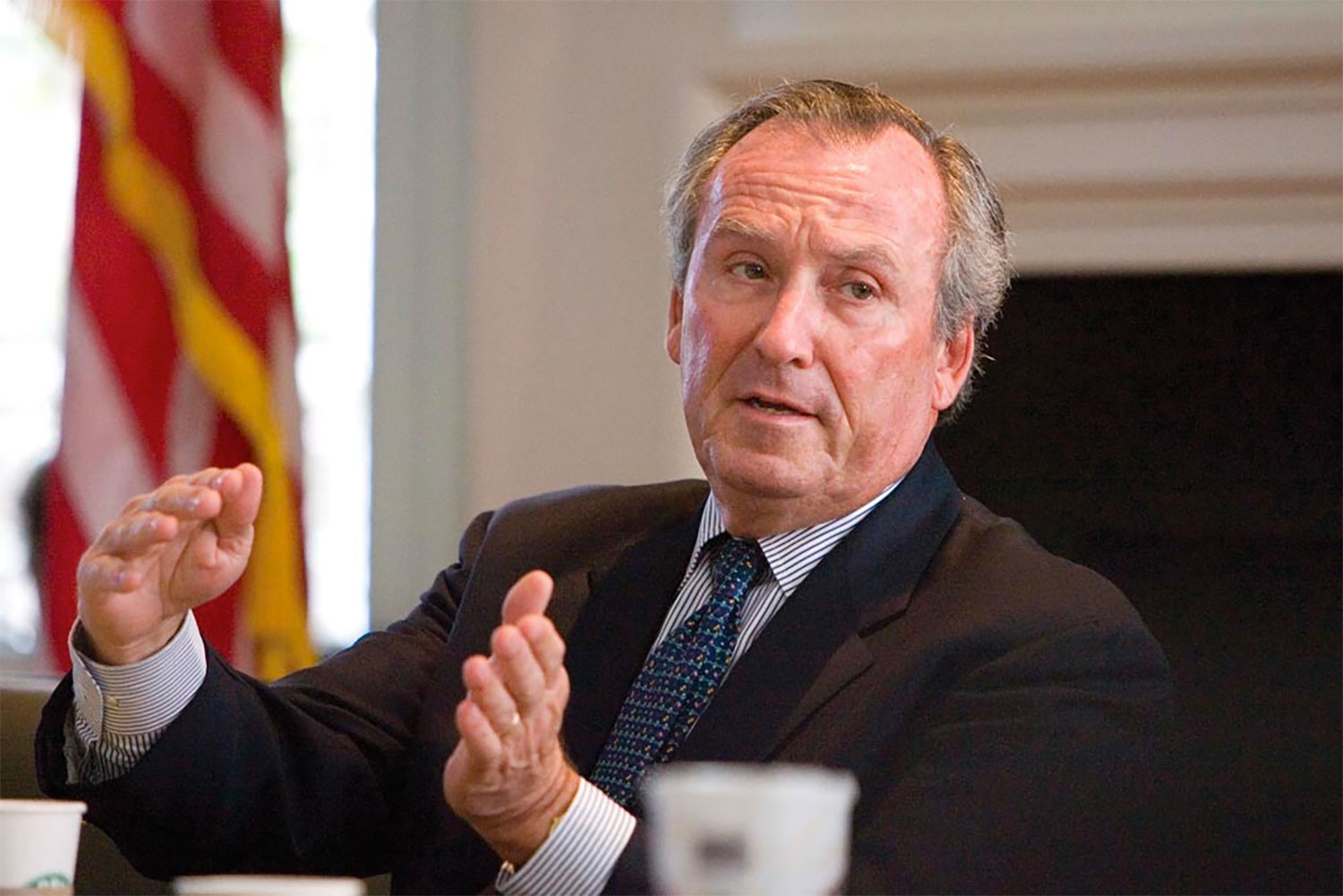— Susan G. Harris, secretary to the Board of Visitors.
Susan G. Harris, secretary to the Board of Visitors, said it was Wynne “who did all of the heavy lifting” in the conversion of the University of Virginia Investment Management Company, or UVIMCO, into an independent, nonprofit entity to manage the University’s endowment – a move that allowed it to hire top investment managers.
“He didn’t get hung up in trying to take credit for what he accomplished,” Sandridge said. “He got satisfaction from seeing it completed.”
Wynne’s term as rector, which ran from 2009 to 2011, came just as the economy was shakily emerging from a recession.
“That was a time when most boards were very concerned about where higher education was going and whether they should pull out of things,” Sandridge said. “Dubby was a steady hand at the time. He did not overreact. He was confident in the position of the University – that we could thrive, and not just survive.”
Many recall Wynne as having high standards, focused on metrics and measuring progress, recalled Harris.
“He was focused and no-nonsense, but also kind,” she said. “We had a good working relationship.”
Wynne’s most public role in the University community came as the head of the search committee that recruited Sullivan. Once she had been reassured about the budget and agreed to come to Grounds, Wynne worked closely with her and kept her updated on University issues during the transition.
“He was also pretty systematic about introducing me to the history of the University,” Sullivan said, recalling lunches in Virginia Beach in which he introduced her to former Rector Josh Darden and Frank Batten’s widow, Jane Batten.
Wynne’s networks came in handy when Virginia’s governorship switched parties in 2010 and Democrat Tim Kaine, who had reappointed Wynne to the Board of Visitors in 2007, was replaced by Republican Bob McDonnell, whom Wynne had supported.
“I think he did a good job in keeping us connected with Richmond at a time when Richmond was in transition, something I could not have done because I didn’t know all of the players. He did,” Sullivan said.
Wynne is survived by his wife of 50 years, Susan Stribling Snodgrass Wynne; sons John Jr. and Brad; two daughters-in-law; and six grandchildren. Another son, Lee, died in 1984 of leukemia at age 6.
Funeral services will be held Friday at noon at Galilee Episcopal Church in Virginia Beach.








